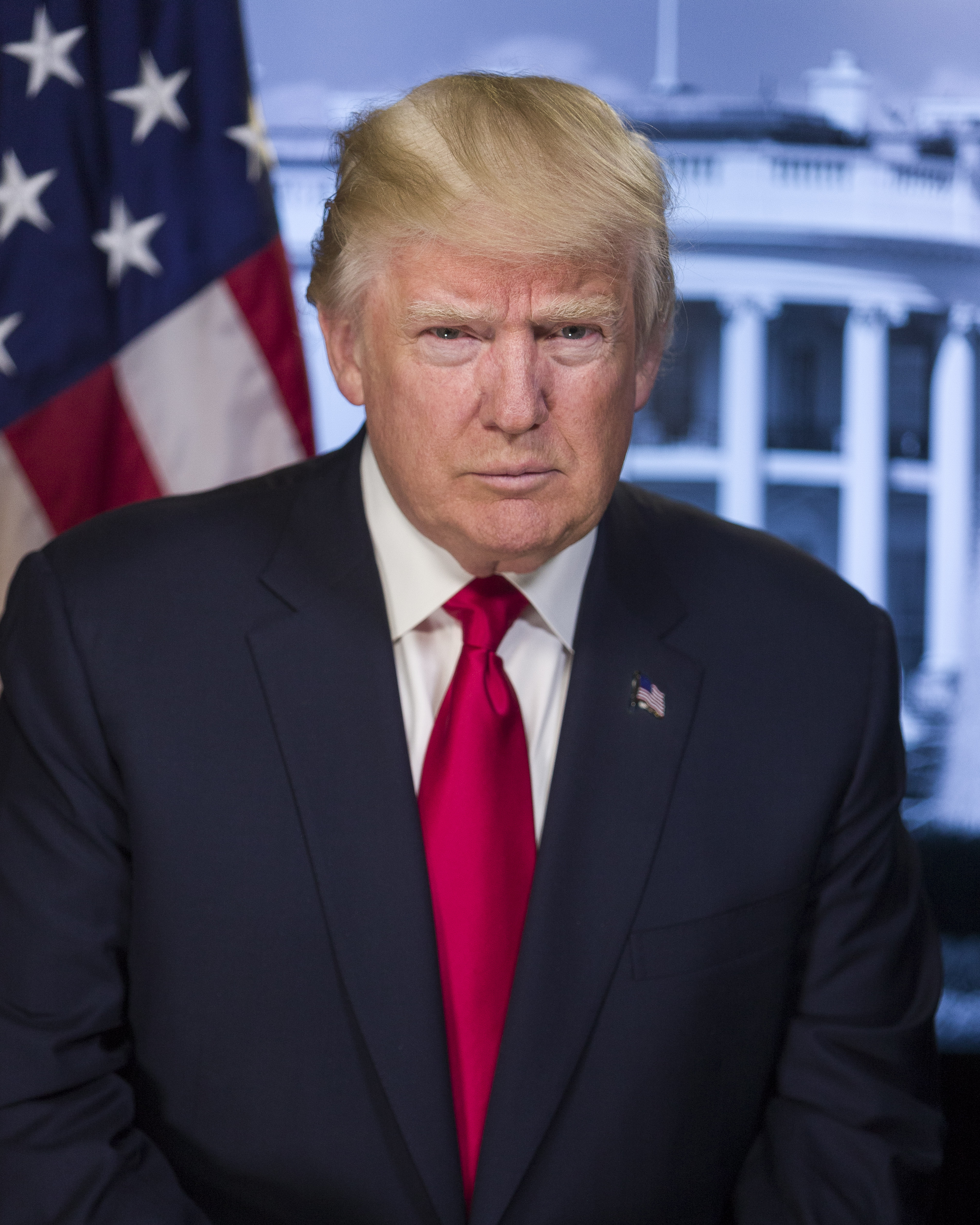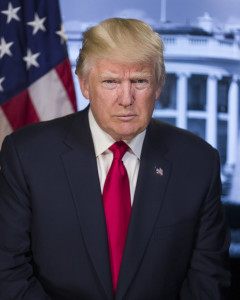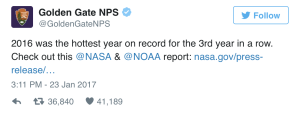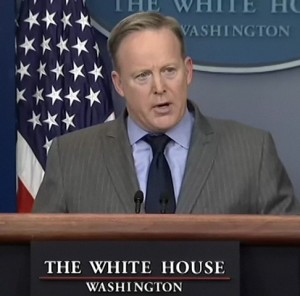Trump’s White House: Personal Attacks and Alternative Facts
 President Trump
http://bit.ly/2kiN3iM
President Trump
http://bit.ly/2kiN3iM

http://bit.ly/2kiN3iM
On January 20th Donald Trump became the President of the United States and entered the White House with a gaggle of close contributors and campaigners. Few were expecting the power plays his administration made within the first two weeks of his office. From freezing federal hiring, regulations and public communications, to firing the acting-Attorney General and forcing dozens of high-level State Department officials to resign, as well as restructuring the National Security Council, Trump’s administration has single-mindedly sought to consolidate its power and silence dissent.
While all of these issues are extremely important, several journalists and media agencies are covering them in detail. Less-highlighted aspects of the administration—or ones that are taken less seriously—are the personal attacks unleashed by the president and his administration’s refutation of reality by proposing and perpetuating “alternative facts.”
THERE’S NO UNTANGLING THE PERSON FROM THE PRESIDENCY
It is common knowledge by now that Donald Trump publishes his (often unorganized) thoughts and opinions online via his twitter account. Since his electoral victory, Trump has personally criticized a litany of groups and individuals: the cast and producers of Hamilton, a musical, Senator John Lewis, union leader Chuck Jones, actor Alec Baldwin, actress Meryl Streep, and federal judge James Robart. In rejecting his critics’ claims, he has mainly used ad hominem rebuttals. By questioning his critics’ popularity, character, and records, Trump is attempting to discredit the valid concerns many people have with his presidency and administration. Looking beyond the president’s shabby rationale and fallacious arguments, his willingness to attempt to discredit those who disagree with him on a personal basis illustrates a lack of maturity and responsibility, and threatens the foundation of liberal democracy in the United States.
For the president — who holds the highest and most powerful office in government— to publicly moralize on the actions or comments of individual citizens sets a dangerous precedent. Not only does it show that Trump is unable to handle criticism silently, it also illustrates that he is willing to use his position of power to shame and discredit people for freely expressing themselves. Most elected officials and government representatives understand that attempting to publicly silence individual citizens is akin to targeting protections of freedom of speech, putting those individuals at risk of personal harm or character assassination that can end their careers. Through such personal attacks, the president is making people think twice about speaking out against him and exercising their rights for fear of a backlash that shouldn’t exist. This might lead not just to the elimination of a diversity of ideological positions, arguments, and thought in the public sphere, but also to a change in the power dynamic: if private citizens, union leaders, congressional representatives, or even federal workers and lawyers fear reprisal for speaking out against the executive, then American civil society is at risk of being strong-armed and suppressed.
This risk also extends to Trump’s habit of labelling the various news agencies he disagrees with, such as CNN and NBC, as purveyors of “fake news,” as well as to his attacks on the intelligence community. The president’s off-the-cuff remarks are not limited to domestic issues; he has insulted a number of foreign nations on twitter, including Mexico and China. In this way, President Trump poses a threat to the United States’ national security, international relations, and liberal democratic principles to a greater extent than any previous president.
PROMOTING UNSUBSTANTIATED CLAIMS AND DEFENDING FALSEHOODS THROUGH THE VEIL OF AUTHORITY
Anything and everything that comes out of the White House usually carries a degree of authority and legitimacy. This is because of the nature and power of the abstraction; the White House is a national symbol, the face of American democracy and liberalism, the home of our nation’s founding fathers, and where the day-to-day administrative work gets done by the “best and the brightest.” It is the mouth piece of the president and decides our nation’s stance on all geopolitical issues. Accordingly, the White House staffers and press secretary have a burdensome responsibility to present evenhanded, well-substantiated evidence to support their public statements and reports.
Instead President Trump and his administration have only accelerated an insidious trend in today’s politics, the growing practice (usually by those on the political right) of refuting opposing judgments and evidence with non sequitur arguments, negating the reality of a situation, or stressing or magnifying trivial circumstances while avoiding the larger, overarching causes or consequences of a fact. From denying the reality of anthropogenic climate change (supported by NASA and Pentagon studies) to ignoring income inequality and blaming the present economic sluggishness on illegal immigrants (a small share of the labour force that pays taxes at a rate of 13-fold to what they receive), the American right has developed a strain of anti-intellectualism, anti-elitism, and fact-rejection that has found its ultimate expression in the Trump presidency.

Without a clear understanding of the U.S. Constitution, how the government works, and how policies are made, Trump was able during his campaign to railroad the media and his political opponents by way of sensationalist remarks, ignoring questions posed to him, name-calling, and shifting blame. Non-factual and politically incoherent statements made by Trump, his cabinet members, or his press secretary should be taken seriously, above all because Trump’s voters and supporters believe them to be true. Thus, when the White House designates the media as “the opposition party”, when illegal immigrants are proclaimed the enemy, when refugees are depicted as a menacing national security threat, and blatant lies are regularly presented as reality, it is vital that we present the facts and voice our disagreement (yes, through public demonstrations but also through political mobilization and reaching out to representatives). Marginalized and dislocated perspectives that had seemed innocuous, laughable, and contained to the sidelines of politics have been vaulted center-stage (and into the White House). When Trump or Sean Spicer refuse to take questions from news agencies that they dislike, or claim (despite irrefutable proof to the contrary) that Trump’s inauguration was larger than President Obama’s in 2009, their actions and strategies must be calmly and clearly condemned as malicious. When important information or acknowledgements are left out of public pronouncements, such as those regarding anti-Semitism and Jewish suffering in the White House’s statement commemorating International Holocaust Remembrance Day, or of hate crimes against American Muslims, apathy and bias must be highlighted.
To be precise, the strategy of Trump’s administration thus far can be outlined as follows: refute the aims and impartiality of mainstream media, claim to be supporting the needs and defending the values of Americans (“any negative polls are fake news […] people want border security and extreme vetting“), shift criticism and blame to weak or nebulous scapegoats (eg. to Muslims and Islam, to illegal Mexican immigrants, to China, to Democrats, to the Intelligence Community, to Delta Airlines), and present themselves as “the best” and most successful (use superlatives). Using such tactics, Trump and his administration are able to portray any and all criticism as sinister, un-American, and claim superiority by virtue of having ‘won’ the election. They are able to rile up conservative voters through false reports and to fatigue the progressive population by incessant controversy.
In a New Yorker article titled, “When it’s Too Late to Stop Fascism, According to Stefan Zweig,” George Prochnuk makes the following cogent remark:
I wonder how far along the scale of moral degeneration Zweig would judge America to be in its current state. We have a magnetic leader, one who lies continually and remorselessly—not pathologically but strategically, to placate his opponents, to inflame the furies of his core constituency, and to foment chaos. The American people are confused and benumbed by a flood of fake news and misinformation. Reading in Zweig’s memoir how, during the years of Hitler’s rise to power, many well-meaning people “could not or did not wish to perceive that a new technique of conscious cynical amorality was at work,” it’s difficult not to think of our own present predicament. Last week, as Trump signed a drastic immigration ban that led to an outcry across the country and the world, then sought to mitigate those protests by small palliative measures and denials, I thought of one other crucial technique that Zweig identified in Hitler and his ministers: they introduced their most extreme measures gradually—strategically—in order to gauge how each new outrage was received. “Only a single pill at a time and then a moment of waiting to observe the effect of its strength, to see whether the world conscience would still digest the dose,” Zweig wrote. “The doses became progressively stronger until all Europe finally perished from them.”

http://bit.ly/2l1JJNK
The most worrying aspect of the administration’s “alternative facts” is that there is no pressure from its supporters for these to be substantiated or defended. Most recently, Sean Spicer falsely accused Iran of attacking a U.S. Navy vessel, an act of war. This sort of warmongering and “alternative fact” is what could easily lead to breakdown in diplomatic relations or, worse, a new war. Through this strategy and the president’s twitter-fingers there comes a point when transparency ends and the justification for executive action is silently implied or simply left unexplained; since the president has the power and legitimacy, trust should be placed in his administration and justification is unwarranted. The silence and complacency of Republicans in Congress is deafening. From this point forward, personal attacks and alternative facts alter the dynamics of executive governance and politics. The mechanisms put in place to protect the American people from persecution and protect the balance of power in government are likely to be tested.
